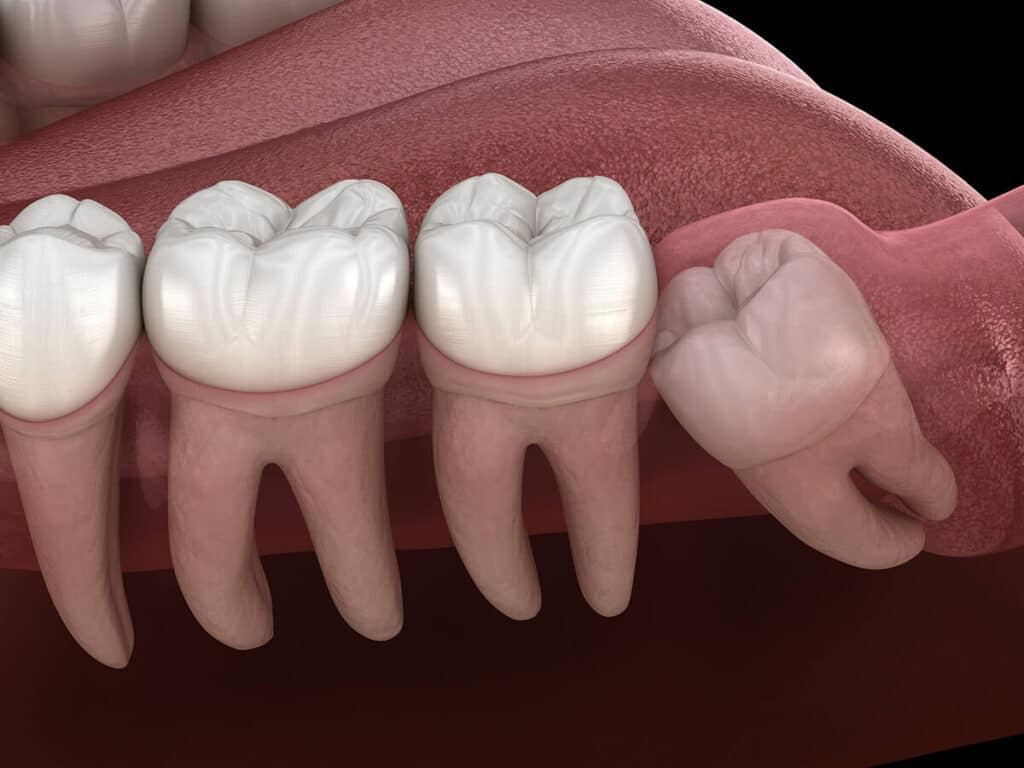Wisdom teeth removal is a common dental procedure that many individuals face. However, it can be a source of anxiety and uncertainty. This article will explore important aspects of wisdom teeth removal to help you better understand the process and make informed decisions.
What Are Wisdom Teeth?
Wisdom teeth, also known as third molars, are the last set of teeth to emerge in the back of the mouth, typically between the ages of 17 and 25. While some people have enough space in their jaws to accommodate wisdom teeth without any issues, others may experience problems due to limited space, leading to the need for their removal.
Reasons For Wisdom Teeth Removal:
There are several common reasons why wisdom teeth removal is recommended. These include impacted wisdom teeth (when the teeth do not fully erupt), overcrowding, misalignment, and the risk of potential complications such as infection, decay, and gum disease. Your dentist or oral surgeon will assess your situation and recommend extraction if necessary.
Consultation And Examination:
Before undergoing wisdom teeth removal, you must schedule a consultation with your dentist or oral surgeon. During this appointment, a thorough examination will be conducted, which may involve X-rays or panoramic images to evaluate the position of your wisdom teeth and determine the best course of action. The dentist will discuss the procedure, address any concerns, and provide necessary instructions for preparation and recovery.
Anesthesia And Sedation Options:
Wisdom teeth removal is typically performed under anesthesia to ensure a comfortable experience. The options may include local anesthesia, intravenous (IV) sedation, or general anesthesia, depending on the complexity of the case and your comfort level. Your dentist or oral surgeon will guide you in choosing the most suitable anesthesia option for your procedure.
Surgical Procedure And Recovery:
The surgical procedure for wisdom teeth removal involves making an incision in the gum tissue, removing the teeth, and suturing the site if necessary. The complexity of the extraction will depend on the position and condition of the wisdom teeth. Following the procedure, it is crucial to follow post-operative care instructions provided by your dentist. This may include pain management, swelling reduction techniques, a soft diet, and keeping the extraction site clean to promote healing.
Potential Complications:
While wisdom teeth removal is generally a safe procedure, it carries some potential risks like any surgical intervention. These can include bleeding, infection, dry socket (a painful condition where the blood clot is dislodged or dissolves before the wound heals), nerve damage, or sinus complications. Following your dentist’s post-operative instructions closely and contacting them immediately if you experience severe or prolonged symptoms is important.
The Bottom Line
Wisdom teeth removal is a common dental procedure to prevent potential complications and maintain oral health. Understanding the process, consulting with your dentist, and following proper pre-and post-operative care can ensure a smoother experience and a successful recovery. Contact your dentist or oral surgeon for personalized guidance if you have concerns or questions about wisdom teeth removal. Remember, with the right information and preparation, wisdom teeth removal can be a manageable and beneficial step toward maintaining your oral well-being.




